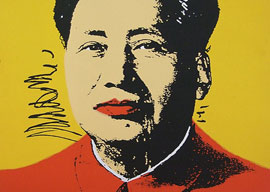
June 20, 2013

I am currently reading the latest of these books: The Hall of Uselessness, at present available on Kindle only but scheduled to be released in paperback on July 30. It is a collection of 39 of Ryckmans’s essays, only 12 of which deal directly with China. The rest range widely, but literature”mainly French and English”is the principal secondary topic.
On China, Ryckmans is still pitch-perfect. He writes of China’s peculiar absence of antique structures:
…the disconcerting barrenness of the Chinese monumental landscape cannot be read simply as a consequence of the chaotic years of the Maoist period. It is a feature much more permanent and deep”and it had already struck Western travellers in the 19th and at the beginning of the 20th century.
(It struck me, too, a hundred years later.) This leads to a profound and fascinating discussion of China’s attitude toward her own past and the relation of that attitude to “the Chinese art of stage-setting and make-believe” which puzzles, amuses, and often irritates us round-eyes.
Ryckmans really hits his stride in his erudite and opinionated essays on Chinese aesthetics:
To what extent is it necessary to be able to read Chinese in order fully to enjoy Chinese calligraphy? A preliminary (and crude) answer may be provided in the form of another question: To what extent is it necessary to be able to read music in order to enjoy a musical performance?
There, and at many other points, I found myself thinking: “Hey, wait a minute….” But I like books that make me argue back like that. If you don”t, Ryckmans is not your man.
His opinions on literature are impressively bilingual: “I read Simenon in English and Greene in French.” He is generally charitable, even to writers he doesn”t like. After some scathing remarks on Malraux, he allows that “Malraux was obviously a genius. What exactly he was a genius at, however, is not quite clear.”
Where his literary knowledge overlaps with mine, I agreed with him: Yes, Orwell was deeply strange, Waugh was dogged by “the fear of incipient lunacy,” and Nikolai Gogol is the best thing Nabokov ever did. Ryckmans is handy with an aphorism, too: “What is life…but a long dialogue with imbeciles?”
Chinese history and aesthetics, literature and the art of translation, Christianity and Confucianism…not everyone’s bowl of tea, I guess; but if you don”t mind argumentative prose and want to stretch your mind a little, try The Hall of Uselessness.